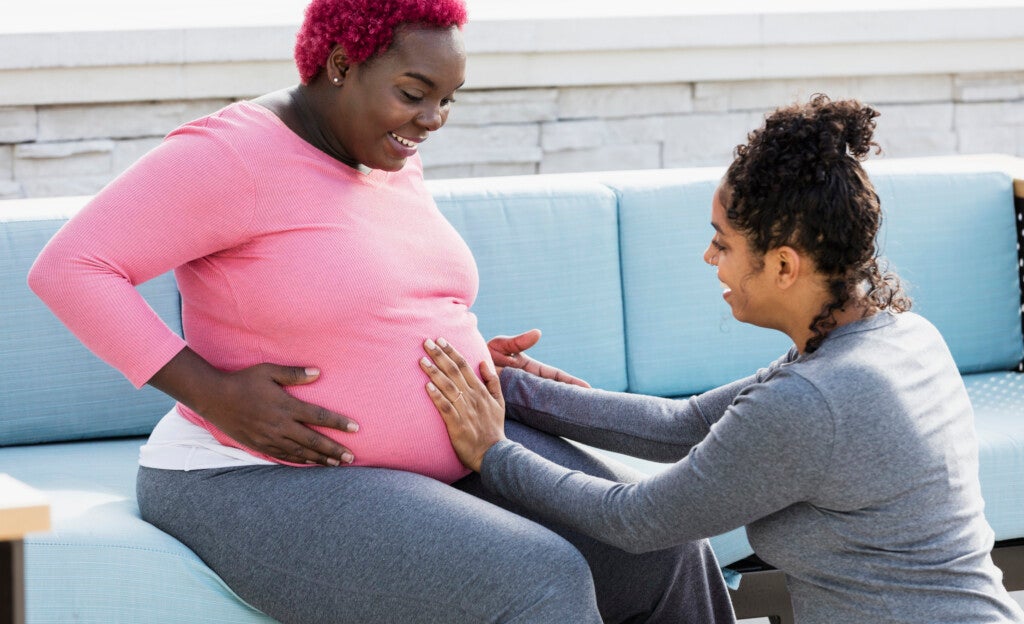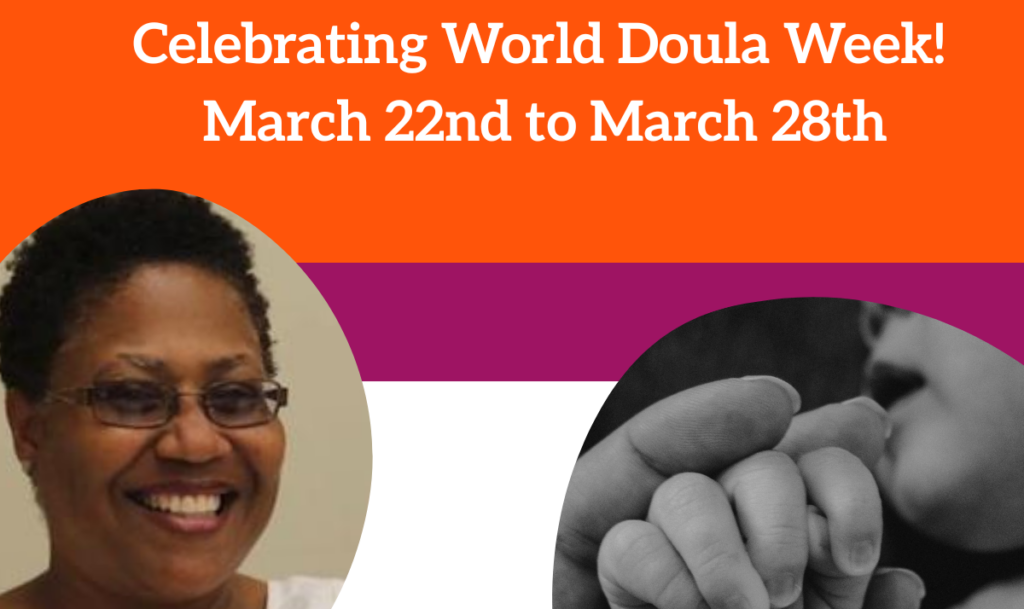In celebration of World Doula Week (March 22-28th), we are featuring reflections from Cynthia Hayes on her advocacy work to advance Black maternal health access and outcomes. Cynthia is a founding leader and Director of the Advocacy Team for Doulas For Connecticut Coalition (Doulas4CT). She is also a mother, a practicing postpartum doula, and has been a member of the Nurture Connection Steering Committee since September 2023.
Can you tell us about how you came into this work?
I never imagined that I would be here, doing this work. I was kind of self-trained when I started out 21 years ago; I did have a little training from other doulas at the time who had their own business, even though there was no certification at that time. So I just went in feet first!
There is a [Black doula] certification process now that enables doulas to serve families receiving Medicaid (in the 14 states that have implemented Medicaid coverage of some kind, including neighbors like Rhode Island, New York, and even New Jersey).
Doctors who elect to participate in the HUSKY maternity bundle through the Connecticut Department of Social Services (DSS) can also include doula support for their patients enrolled in Medicaid. But it really started with national organizations like March of Dimes, Planned Parenthood, and United Way initiatives, in partnership with local organizations, allowing grassroots groups to actually formulate the plan and really help us pass very
meaningful legislation to ensure that Black women can obtain a thriving income as doulas.
This is very hard work that deserves a fair recognition.
Why do you feel it’s so important for the early childhood field to have a focus on Black maternal and infant health?
I’ve been in the trenches for so long. I felt that it was very beneficial for younger Black women to become a part of this [Black doula] movement that you’re now seeing, especially here in Connecticut. Access means choices, and access means that we’re activating birth justice. And that whole idea came from the Black community and us working together and organizing at a grassroots level. When we passed legislation to actually have a doula advisory board, we wanted to talk about what was important — including just how much Black people have been systematically shut out, as well as others who have been disenfranchised [in the maternal and infant health field]. We definitely needed to concentrate on, historically, what birth has been in this country and what it means.
We know that race is not the factor that contributes to a negative birth outcome, but racism does.

“This is very hard work that deserves a fair recognition.” —Cynthia Hayes
Where does doula work sit within healthcare, communities, and community building?
When I started this work, many families had never heard the term “doula” (even as recently as 10 years ago!); I first heard it in a PBS documentary, A Doula Story. I literally stood over the TV crying, and I thought, Oh, my goodness, why am I not working in my own community?
If we can assist anyone that identifies as a Black woman or birthing person and help them gain access to doula care, we can also assist those Black doulas who have been systematically and institutionally marginalized (as professionals).
I participated in a doula training for Black women where the group included attendees from different ethnic backgrounds — some of us were Jamaican, others had African ancestry; some of us were born outside the U.S., others were born and raised here. We all had different professional backgrounds, too — social work, healthcare, and so on. Each of us had something to contribute to the conversation, and it helped to build a community around birth justice and, in fact, expand that community by coming together and helping each other.
Discover more:
- Nurture Connection Presents: Recognizing the Power of Early Relational Health in the Community-based Doula Movement
- Community-Based Doulas and Early Relational Health: The Role of Public Policy and Financing
- ERH In Action with HealthConnect One: Birth Workers Provide Vital Care to Parents and Newborns
